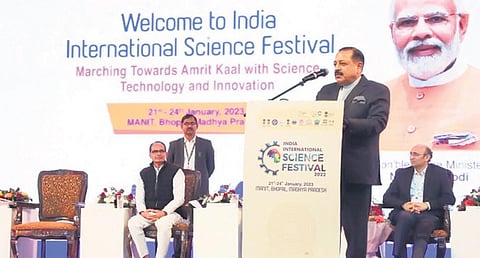

BHOPAL: A waste-to-wealth technology that turns toxic fly ash generated by thermal power plants in Madhya Pradesh into ‘evergreen hybrid wood’ (better than conventional wood and plywood), promises similar green solution to stubble burning in Haryana, resulting in better air quality in neighbouring Delhi.
Researchers at Council of Scientific and Industrial Research (CSIR) Advanced Materials and Process Research Institute (AMPRI) in Bhopal have successfully converted parali (stubble) into eco-friendly and evergreen hybrid wood, which is 30% cheaper and 20% stronger than the conventional particle wood and plywood.
The wood derived from parali can be used for making doors, partition panels, roofing sheets and thermal insulator materials. The parali-to-evergreen hybrid wood technology developed in two years has already been transferred to the Haryana government, which, as per CSIR-Advanced Materials and Process Research Institute researchers, is now trying to commercialize it through the MSME sector in the state.
The technology has also been transferred to a Raipur (Chhattisgarh) company, which is working at starting large-scale production of Parali-to-evergreen hybrid wood, that will not only address the menace of stubble burning by farmers in northern India and consequently better Delhi’s air quality, but also conserve the environment by preventing felling of trees for making particle wood and plywood.
The researchers started working on the greenwood technology in 2010. Nearly a decade-long research by CSIR-AMPRI director Prof Avanish Kumar Srivastava led to the development of an alternative wood out of fly ash, which was fit for making furniture and decorative items.
“The technology was also transferred to a Chandrapur (Maharashtra)-based private unit for commercialization. In 2020, West Bengal showed interest in the technology developed by us and with our help combined jute also with it,” said Dr Manoj Gupta, a CSIR-AMPRI scientist forming part of the research group.
Talking to this paper at the ongoing India International Science Festival (IISF-2022) in Bhopal on Sunday, Dr Gupta (whose research group is headed by scientist Dr Ashokan Pappu), said in 2020, the Haryana government had approached them for rendering a similar solution to their Parali related woes.